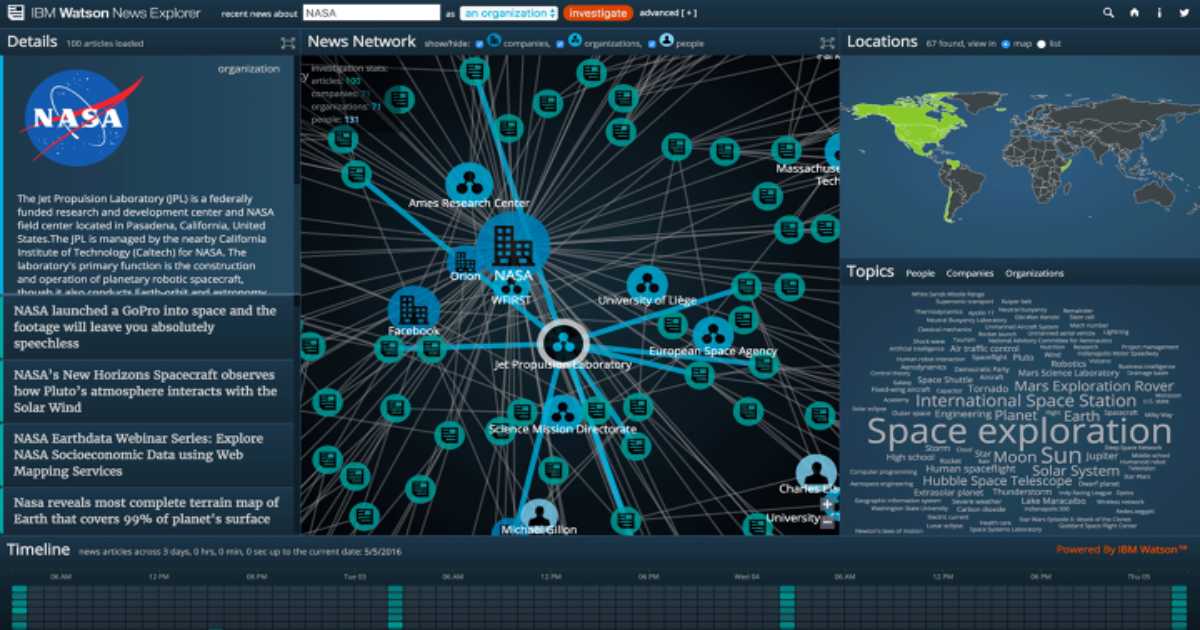People use AI systems to reinforce the still human-powered journalistic news processes and organizational workflows. AI can save journalism through networking. News operations are complex organizations similar to most enterprises. These organizations are using AI to assist streamline their distributed processes for gathering information. And also for contacting sources and backend operations like addressing the advertisers and classifieds.
AI can save journalism through automating. AI uses Intelligent automation tools to bridge gaps between various systems. And help stitch the varied systems and processes needed to create stories, put reporters on site. And organize content usable for readers, advertisers, and others.
These systems use machine learning-powered language processing to assist paperwork like expenses and receipts for news operations. Also, people use these AI-based systems to assist keep an eye fixed on thin journalism business margins. AI can save journalism through assisting. They’ll spot unusual expenses, operations that are running outside of acceptable business requirements. Otherwise, provide visibility to assist make the journalism business more profitable and efficient.
Journalism continues to alter with each wave of technology. Handwriting made way for mass printing. Also the telegraph sped-up news collection across large distances. The phone and radio accelerated journalism even further. And in the past 100 years, journalism moved from radio to television to cable to the web. In each iteration, the news business has changed. There’s a little doubt that during this latest iteration, AI will change journalism. And can still change the way that news is formed, generated, managed, published, and shared.
AI Mean For Journalism
AI will help journalists do more investigative work by analyzing massive sets of information. Also pointing to relationships not easily visible to even the foremost experienced reporter. AI can save by analyzing the information. The mix of AI and journalism will contribute to an informed and efficient society enabling journalists to conduct deep analysis. Also, uncover corruption, and hold people and institutions accountable.
These new tools will eventually become prevalent in most newsrooms across the planet. However, we should always not expect mass adoption without a fight.
From the evolution of successful writing technologies from the past, we are able to see an awfully specific cycle emerge. And the way long it takes to develop. AI can save journalism through research.
While it’s clear the mixing of machine learning, cognitive analysis, and massive data will revolutionize multiple aspects of the planet. Careful consideration is necessary when extrapolating its benefits to journalism.
Challenges For AI In Journalism :
1. Availability of data:
Machine learning works best when there are sufficient data for it to choose informed patterns, and optimize the system accordingly. AI can save journalism through imparting knowledge. While people at large can analogize experiences and intuit optimal responses through just some similar experiences. AI requires large amounts of knowledge to understand what the proper response should be. Without the provision of knowledge, we can’t restrict the power of AI.
2. Understanding unstructured data :
AI also has difficulty with unstructured data. Tabulated results of sports games or earnings data convert into articles using standardized templates. AI can save journalism by converting data. But if AI is to become more widespread within the creative economy. It’ll harness and synthesize unstructured data, which makes up most of the info available today.
3. Lack of self-awareness :
To grasp how data translates into a specific story, designing AI accountable to consumers will be thoughtfully considered. In addition, there is a method to attain this – especially with data-heavy content where AI features a natural advantage. AI can save journalism through experience and awareness. It may well be by allowing consumers to regulate the parameters of an algorithm to determine how the results change. Also when applied to news, it’s worth considering whether new journalistic standards must be developed or not.
4. Verifying authenticity :
AI cannot distinguish whether the input it receives is correct or wrong. this may cause issues around authenticity. But if AI receives questionable input, the corresponding output could also be false. AI can save journalism by verifying inputs. The answer is to develop and implement mechanisms to make sure the authenticity of articles shared online. Hence this might include metadata and trackbacks for facts and sources.
5. Redefining copyright and fair use :
New technologies have frequently challenged copyright laws within the creative industries. And check the legal interpretation of ‘fair use’, where copyrighted material employed. AI can save journalism by eliminating copyrights. As a result, it provides new and ‘transformative’ content without permission or payment of royalties.
6. Ensuring corporate accountability :
AI was not legally accountable. So, human accountability must be embedded in altogether stages of the content value chain. Content distributors like Facebook, Google, Instagram, Twitter hold unparalleled power to tell. AI can save journalism through corporate content. Because AI algorithms accustomed to determine the relative value of content that appears before users.
7. Building asymmetrical power :
The biggest newsrooms are building their own AI. But smaller outlets force to license proprietary content.

All you need to know about Artificial Intelligence
Learn Artificial Intelligence
Learn Artificial Intelligence with WAC
Other Skills in Demand
| Artificial Intelligence | Data Science |
| Digital Marketing | Business Analytics |
| Big Data | Internet of Things |
| Python Programming | Robotics & Embedded System |
| Android App Development | Machine Learning |

